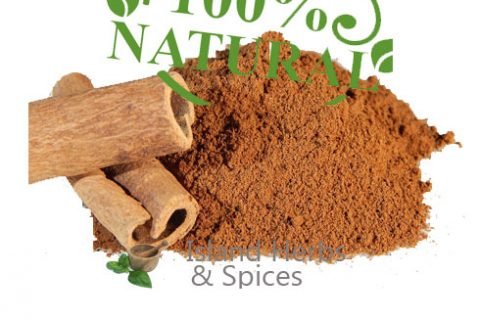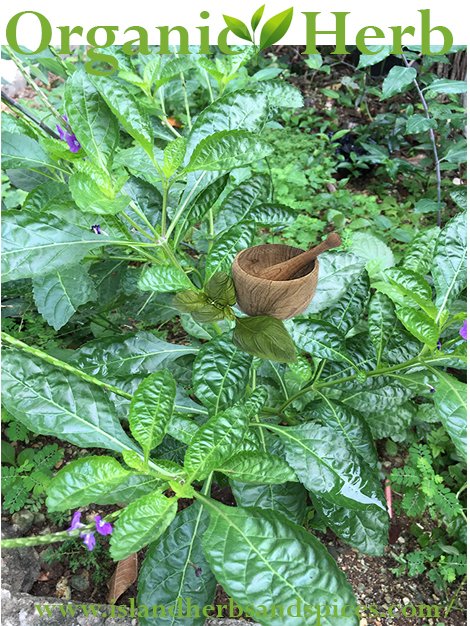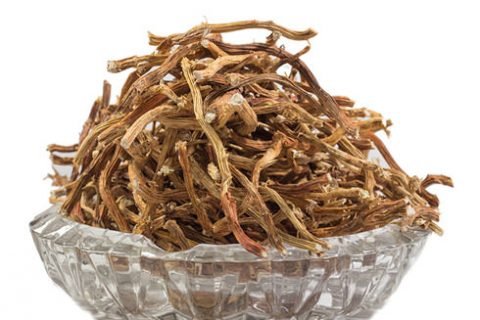 Island cuisine is renowned for its vibrant flavors and aromatic dishes, largely attributed to the unique herbs that flourish in tropical climates. Incorporating these herbs into your kitchen not only enhances the taste of your meals but also offers numerous health benefits. Here are ten essential herbs that every island kitchen should have:
Island cuisine is renowned for its vibrant flavors and aromatic dishes, largely attributed to the unique herbs that flourish in tropical climates. Incorporating these herbs into your kitchen not only enhances the taste of your meals but also offers numerous health benefits. Here are ten essential herbs that every island kitchen should have:
1. Moringa (Moringa oleifera)
Moringa, often called the “Miracle Tree,” is a versatile herb native to parts of Africa and Asia, gaining popularity across the Caribbean for its wide range of health benefits. Known for its nutrient density, moringa leaves are rich in essential vitamins like A, C, and E, as well as minerals including calcium and potassium. This unique profile makes moringa an excellent choice for enhancing immunity, improving digestion, and promoting heart health. Traditionally, moringa is used in teas, where its earthy flavor pairs well with honey or lemon, making it a refreshing and energizing drink. The leaves are also dried and ground into powder, which can be sprinkled over dishes or incorporated into smoothies for a nutritious boost. Beyond its culinary use, moringa is believed to reduce inflammation, aid in blood sugar regulation, and support overall vitality. Given its potency and versatility, moringa is ideal for anyone looking to incorporate more nutrient-dense plants into their diet. Whether you’re making a herbal tea or a hearty stew, moringa adds a unique, healthful touch to your island kitchen.
2. Ginger (Zingiber officinale)
Ginger, with its spicy, slightly sweet flavor, is a cornerstone of island cooking and is widely recognized for its medicinal properties. Originating from Southeast Asia, ginger has been embraced in island cultures for centuries as a remedy for digestive issues, nausea, and inflammation. The rhizome, or root, of the ginger plant contains gingerol, a bioactive compound known for its anti-inflammatory and antioxidant effects. Fresh ginger is used in a variety of dishes, from marinating meats to adding a kick to sauces and stews. It’s also a popular ingredient in teas, where its warming properties make it perfect for soothing sore throats, colds, and other respiratory ailments. For a unique twist, you can incorporate ginger into both sweet and savory recipes, like ginger cakes or jerk-seasoned meats. Island residents also use ginger to combat motion sickness and improve circulation. Whether you’re using it fresh, dried, or as a powder, ginger’s bold flavor and powerful health benefits make it a must-have herb in any island kitchen.
3. Allspice (Pimenta dioica)
Allspice, derived from the dried berries of the pimento tree, is a unique spice with a flavor profile reminiscent of cloves, nutmeg, and cinnamon. Native to the Caribbean, allspice is a staple in island cuisine, where it’s used to season meats, soups, and especially jerk dishes, giving them a warm, spicy depth. The essential oils in allspice contain eugenol, a compound with known antiseptic and anesthetic properties, making it useful not just in cooking but also in traditional medicine for treating minor aches and toothaches. When ground, allspice can be used in marinades, stews, and desserts, lending a distinctively aromatic note to both sweet and savory dishes. Beyond culinary applications, allspice is valued for its digestive benefits; a tea made from allspice is often consumed to relieve indigestion, bloating, and nausea. This versatile spice embodies the spirit of island cooking, adding rich, layered flavors to foods while offering therapeutic benefits that have been appreciated for generations.
4. Turmeric (Curcuma longa)
Turmeric, a golden-yellow root from the ginger family, is celebrated for its vibrant color, warm flavor, and extensive health benefits. This herb is native to South Asia but has become a staple in Caribbean kitchens, particularly in dishes like curries and stews. The active compound in turmeric, curcumin, is a powerful antioxidant and anti-inflammatory, often used in traditional medicine to manage pain and inflammation, support liver function, and enhance immune health. In cooking, turmeric’s earthy flavor and color make it a favorite for seasoning rice, soups, and even sauces, where it provides both visual appeal and depth of flavor. Traditionally, islanders use turmeric in teas or combine it with honey and ginger to make an anti-inflammatory tonic. Its medicinal uses extend to skincare as well, where it is used for its antibacterial properties. Given its versatility and potent health benefits, turmeric is essential for adding both flavor and function to an island kitchen, enriching dishes while promoting well-being.
5. Thyme (Thymus vulgaris)
Thyme is a versatile herb with a distinctive aroma that’s integral to many island dishes. With its origins in the Mediterranean, thyme has adapted well to tropical climates and is widely used in the Caribbean for its culinary and medicinal properties. Thyme has a subtle, slightly minty flavor that complements the robust flavors of island cuisine, making it a popular choice for soups, stews, and marinades, especially in recipes that feature meats and vegetables. Beyond its culinary applications, thyme is valued for its antiseptic, antifungal, and antibacterial properties, often used in traditional medicine to treat respiratory conditions, sore throats, and digestive issues. It’s also a key ingredient in teas aimed at supporting the immune system and alleviating cold symptoms. Island residents commonly prepare a thyme-infused tea to relieve coughs and promote relaxation. Whether fresh or dried, thyme’s earthy flavor and medicinal benefits make it an indispensable herb for any kitchen focused on both taste and health.
6. Lemongrass (Cymbopogon citratus)
Lemongrass, known locally as fever grass, is cherished in island kitchens for its fresh citrus flavor and its medicinal properties. This tall, aromatic grass has a subtle lemony scent and is used extensively in both culinary and healing applications. In cooking, lemongrass is a favorite for adding a bright, zesty flavor to soups, stews, and marinades, particularly in seafood dishes where it complements the delicate flavors of fish and shellfish. Beyond its culinary appeal, lemongrass is widely used in herbal teas, known to promote relaxation, reduce fevers, and aid digestion. Traditionally, it is also used as a mild sedative, helping to relieve anxiety and encourage restful sleep. The essential oils in lemongrass have antibacterial and antifungal properties, making it beneficial for treating skin conditions as well. As a fragrant and functional herb, lemongrass is perfect for adding a refreshing note to island cuisine while offering a variety of wellness benefits.
7. Soursop Leaves (Annona muricata)
Soursop, also known as graviola or guanabana, is a tropical fruit with leaves that are just as prized as its delicious flesh. The leaves of the soursop tree have long been used in traditional island medicine, valued for their potential cancer-fighting properties, immune-boosting effects, and ability to reduce stress. Soursop leaves are commonly brewed into a tea that offers a mild, earthy taste and is thought to promote relaxation, alleviate insomnia, and relieve pain. Additionally, studies suggest that compounds in soursop leaves may exhibit antimicrobial and anti-inflammatory properties, making them useful for treating colds and respiratory conditions. In island culture, soursop leaf tea is a comforting remedy for those looking to unwind or manage stress, and it’s often recommended to individuals seeking natural ways to improve overall wellness. Incorporating soursop leaves into your kitchen allows you to enjoy not only the soothing taste of this tea but also the wellness benefits rooted in traditional island practices.
8. Cerasee (Momordica charantia)
Cerasee, also known as bitter melon, is a distinctive, green herb with a long history of medicinal use in the Caribbean and beyond. Known for its bitter flavor, cerasee is typically used to make a potent tea that is believed to cleanse the body, support digestive health, and even help manage blood sugar levels. Its bitterness is often embraced for its detoxifying qualities, as it is thought to purify the blood, aid in liver health, and improve skin conditions such as acne and eczema. The high antioxidant content in cerasee helps protect cells from damage, and its anti-inflammatory properties make it useful in traditional remedies for various ailments, including stomach complaints and skin rashes. Though intense in taste, cerasee tea is a staple in many island households, consumed as part of seasonal cleanses or to manage common ailments naturally. Adding cerasee to your herbal collection brings a unique flavor with substantial health benefits for those looking to embrace herbal remedies with deep cultural roots.
9. Guava Leaves (Psidium guajava)
Guava leaves are a simple yet potent addition to an island kitchen, especially valued for their effectiveness in treating gastrointestinal issues. Known for their antimicrobial and anti-inflammatory properties, guava leaves are traditionally used to address ailments like diarrhea and dysentery. When brewed into a tea, guava leaves have a mild, slightly astringent taste and are often consumed to promote digestion, relieve stomach pain, and support weight management. Additionally, they are thought to help regulate blood sugar levels, making them a natural remedy for those managing diabetes. The tannins and flavonoids in guava leaves contribute to their health benefits, and their antimicrobial properties make them useful for treating mouth ulcers and promoting oral health. In island cultures, guava leaf tea is a comforting solution for digestive discomfort and is frequently included in the family herbal pantry for its versatility and efficacy. By incorporating guava leaves, you add a reliable, gentle remedy with wide-reaching health benefits to your herbal toolkit.
10. Sarsaparilla (Smilax regelii)
Sarsaparilla, a climbing vine native to Central and South America, is known for its distinctive root, which has been used in traditional island medicine for centuries. Often used as a blood purifier, sarsaparilla contains active compounds that are believed to help detoxify the liver, improve skin conditions, and support overall wellness. The root is commonly brewed into a tea that has a slightly sweet, earthy flavor and is used to treat skin issues such as eczema and psoriasis due to its anti-inflammatory properties. Sarsaparilla is also valued for its potential to relieve joint pain and arthritis symptoms, as it contains plant steroids that mimic the body’s own hormones. Beyond its health benefits, sarsaparilla has a long-standing cultural significance, with many islanders using it as a general tonic to improve stamina and vitality. In your kitchen, sarsaparilla adds a deep, robust flavor to teas and is an ideal herb for those looking to embrace a holistic approach to health that encompasses both detoxification and rejuvenation.







